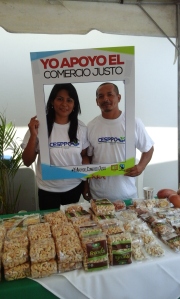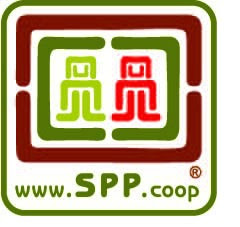
Photo by Kai Horstmann
Dear Tea Drinkers,
I am absolutely convinced that if you knew the deplorable conditions in which the vast majority of tea workers lived; the endless studies documenting the human rights and labor rights violations rampant on tea gardens, tea estates, tea plantations (call them what you will), the child slavery, indentured slavery, human trafficking that goes on unpunished – I am absolutely convinced that you WOULD STOP BUYING TEA from most of the brands that you think of as the “established”, “reputable”, and “prestigious” companies stocked on your grocery stores’ shelves.
I am absolutely convinced that if you knew all this AND knew of the enormous profits and industry control of the entire tea supply chain, you would think twice about who your dollars are supporting.
Sadly, the vast majority of Fair Trade Teas on the market do not dramatically improve worker conditions, empower workers, nor most importantly, change either the overall situation or the balance of power for those doing the hardest work cultivating, picking, and processing tea.
The article below is just one more in an endless, seemingly ignored, expose of the abuses of the “conventional” tea industry.
It is hard not to feel tremendous pride, and a deep commitment to the work we at Equal Exchange, and more importantly, our small farmer tea partners in India, South Africa, and Sri Lanka are doing – against the current – to build small farmer supply chains and an informed, engaged consumer citizenry to transform the way in which we enjoy our morning or afternoon tea break.
Please help us support an alternative tea supply chain so that we can all wake up in the morning knowing that the tea we so enjoy is also supporting the dignity of those in the tea industry, and providing improved conditions, livelihoods, and communities of those far away from us geographically, but so connected to us in every other way.
Indian tea workers, a life without dignity
On the occasion of International Labor Day, the Global Network for the Right to Food and Nutrition (GNRTFN) releases a report on the dire working and living conditions that tea plantations workers face in Assam and West Bengal, two tea producing regions in India.
Based on a GNRTFN fact finding mission (FFM), A Life without dignity – the price of your cup of tea highlights the human rights violations and abuses that India’s tea plantation workers have endured for generations, in particular of their right to adequate food and nutrition (RTFN) and related rights. The report also reflects years of work by two of its members, the International Union of Food Workers (IUF) and the Right to Food Campaign in India.
The findings show that tea workers are not receiving adequate living wages, and their working conditions are harsh and physically arduous. Without protective equipment, those who spray tea bushes are regularly exposed to pesticides. Female tea pluckers –around half of the work force – suffer from violations of their human rights. As a general rule, women plantation workers are subjected to violations of their maternity protection rights and benefits and face rampant discrimination at work; the wages they receive are less than those of men; and they have few, if any, promotional opportunities. These violations at the workplace are compounded by the pervasive human rights violations they face vis-a-vis their living conditions.
While the Plantation Labour Act (PLA) entrusts the tea plantation owners with the responsibility to provide tea workers and their families with basic needs, including drinking water, health care, education and housing, this could not be further from reality. Workers’ houses are old without any water supply or sanitation facilities and their children do not receive proper education. Workers’ families, who want their children not to live under the same conditions of life as current and previous generations, toil to provide a good education. Often, parents face huge barriers at every stage of their child’s growth. Health care and medicine are not within easy reach–physically or financially– nor are other basic necessities, such as water, sanitation, or electricity.
The lack of security of tenure appears to be at the core of their continued dependency on tea plantations. With workers having no legal right over their house and land, any management staff has the power to evict any worker currently out of work. This has meant that workers, particularly women, continue to work for pittance wages in order to keep a toehold on the only house that they possess, having lost their ties to their actual homeland over the last 200 years. The workers therefore continue to work in a state of bondage, frightened to organize and fight for better working conditions, as protests can mean eviction from their homes.
By enacting the PLA, the Government of India formalized the system that had kept workers completely dependent on tea plantation owners. This dependency becomes most obvious and detrimental when plantations close down – as is the case in West Bengal. Without any savings or a place to go, tea workers are forced to take drastic measures to ensure their survival and with some dying of hunger in extreme cases.
Amongst its key recommendations, the GNRTFN calls on the State of India to take immediate actions to guarantee all human rights of tea workers, especially, the RTFN, housing, water, sanitation and education, in line with international and national law, ensuring close consultation with the concerned workers. Any decisions in relation to the future of tea gardens, including any structural alternatives, should be taken with the involvement of tea workers throughout the entire process. Understanding the impact of abandoned (closed) plantations on the lives of workers and their families, the Network also urges the State of India to pay urgent attention and adopt the necessary measures.
You can find the report here.
NOTES TO EDITORS:
- The FFM took place in tea plantations in Assam and West Bengal from 27th November 2015 to 4th December 2015. Pre-findings were presented in two press conferences in Kolkota and New Delhi.
- The Network is an initiative of CSOs and social movements (peasants, fisherfolk, pastoralists, landless people, consumers, urban people living in poverty, agricultural and food workers, women, youth, and indigenous peoples) that recognize the need to act jointly for the realization of the RTFN.
Read more about Equal Exchange’s efforts to build an alternative tea supply chain here and here.
For more information about the FFM, please contact tang[at]fian.org and cordova[at]fian.org
For media enquiries about the report, please contact delrey[at]fian.org
Read more about the Global Network for the Right to Food and Nutrition
Read Full Post »








